Article 40 of the Constitution guarantees citizens of the Russian Federation the right to have housing. It is also written there that for the poor and other needy categories it should be provided at an affordable price or free of charge from the housing funds of the state or municipality in accordance with existing standards. Such citizens are lined up to improve housing conditions.
Other laws and regulations also contain a similar provision. The most important of them in this case is the Housing Code of the Russian Federation (dated 01.03.05). Among other things, its chapters contain a list of grounds for providing such housing.
A prerequisite is that citizens applying for enqueue must simultaneously belong to the categories of the poor and prove their need for better housing conditions.
To fall into the latter category, applicants must either have no apartment at all (not be tenants or members of their families and do not own property), be provided with square meters, the total area of which is less than the accounting norm, or live in an unsuitable room (for example, in an emergency house ), or to live with a patient with a chronic form of one of the diseases, the list of which is approved by the Government.
To be recognized as poor, you must have an income per family member below a certain level set by local authorities.
Out of turn, they put on record orphans and those who are left without parental care, as well as people affected by the elements, residents of emergency houses "for demolition", invalids of the Second World War I, Chernobyl victims and citizens of some other categories.
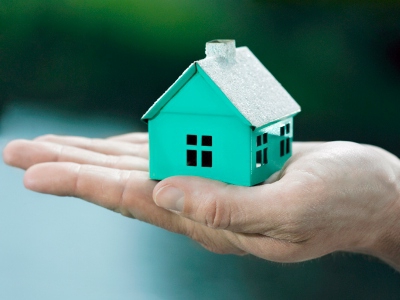
What papers need to be issued?
If your goal is to improve housing conditions, you will need certificates of registration for everyone who is registered for the past 10 years. It will also require a description (characterization) of the occupied living space (in addition to the hostels) over the past five years. In addition, copies of warrants or property contracts will be required, for dormitories - copies of sanitary passports, for reserving housing - copies of security certificates.
If the spouse of the waiting person is registered at a different address, the same documents will have to be provided for this housing. Both will need certificates of employment, a certificate of marriage or its dissolution, the birth of children and the death of relatives. It will be necessary to make copies not only of the above documents, but also from work books (for those occupying official housing), preferential and pension certificates, passports, military tickets. If the area is deemed unsuitable for living, the act of the admission of the interdepartmental commission must be included in the number of papers.
Documents for improving housing conditions should be provided to the district administration.
The procedure for obtaining a preferential apartment is complex, and most importantly - very long. Most of the above categories of people in need are eligible for state subsidies in the form of social housing. We are talking about apartments from the state or municipal fund, not subject to transfer to ownership. By the way, stateless persons and foreigners cannot apply for such housing.
Who benefits
Some categories of citizens who have the status of socially vulnerable (for example, single mothers) will have to stand in line along with everyone.
Subsidies for improving housing conditions "shine" only to those who do not comply with the accounting housing norm (minimum area per person). It is installed in each region by local authorities. The exception is people living in emergency homes or together with seriously ill relatives.
Improvement of living conditions for single mothers takes place on a common basis, this category does not take advantage of its priority. Moreover, from 01.01.2013 they can no longer claim the queue for apartments and orphans (graduates of orphanages).

Who can get social housing without standing idle for years in anticipation?
There are only two categories left. These are citizens whose housing is legally declared unsuitable and not subject to reconstruction (for example, a victim of an explosion). And those who suffer from certain diseases in a severe chronic form - tuberculosis, mental disorders and so on.
The line for improving housing conditions is moving extremely slowly. Only in the most urgent cases can an apartment be received within 2 to 4 months.
An important point that must be taken into account is the concept of “joint ownership”. Even if the spouses are divorced, but have an apartment with an area of more than 2 accounting standards (in the presence of a child or children - 3 of these standards), none of them has the right to apply for inclusion in the queue for improvement of living conditions.
Registration Procedure
First of all, you should collect all of the above documents. Having handed over the package to the authorized body, you will receive a receipt of acceptance from the civil servant. Then, up to 30 days, you can wait for an official response. If it turns out to be positive, then in the distant future you will find housing. Unfortunately, this will not happen until 15 or 20 years later. This is the usual time period for receiving it, even for single mothers.
That is why people in need of better housing are trying to find an alternative option, for example, to issue a mortgage. So, a single mother with two children has the opportunity to take a loan under maternity capital, and spouses can take out a loan under the program for young families.
Mortgage to a young family: what is it?
This concept operates both within the framework of the state mortgage program and as a special offer of a number of banks.
The mentioned federal program is an integral part of the targeted housing program adopted by the state. It is officially aimed at improving housing conditions for young families.
What kind of cells of society can use it? The program is designed to improve housing conditions exclusively for families whose members are no more than 35 years old. It allows you to issue either a loan to purchase an apartment on the real estate market, or a bank loan.
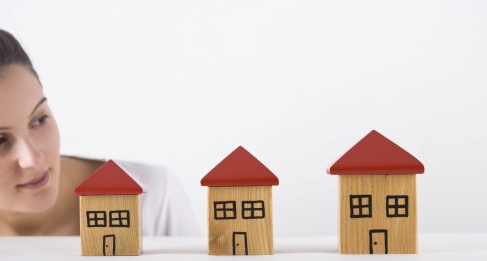
The amount of the subsidy provided by the state to improve housing conditions for young families depends on the cost of housing in a particular city or region. So, in Moscow, a married couple is given 28 square meters. m, and in the presence of children - 18 square meters. m per family member.
Social mortgage is more profitable for those young families where there are kids. In this case, the state assumes payment of 35% of the amount comprising the cost of housing, plus 5% for each of the children. After paying part of the cost from the state pocket, the family is credited for the balance of the required amount in a commercial bank.
An important condition, which many forget about, is that you must always stand in line for improvement of housing conditions. Otherwise, you will not be able to participate in the program.
Recommendations for future borrowers before going to the bank
- It is better to choose a loan with a standard repayment scheme.
- It is recommended to go after him to the bank where funds for improving housing conditions are given to families on favorable terms.
- You should focus not so much on the minimum bid as on the maximum term.Nowadays, loans are extinguished ahead of schedule without any fines, and it is more profitable to insure yourself with a longer loan term.
Mortgage for teachers
Another housing program designed for teachers is being implemented in our country under the name “Young Teachers”. It was developed in the framework of the government decree of 12.29.11. It deals with a partial reimbursement of the costs of obtaining a generally accepted mortgage loan specifically for teachers.
Under the terms of this mortgage, only municipal and state schools under the age of 35 are subject to partial payment of the down payment. The right to this subsidy by the teacher is confirmed by a special certificate, for which you should contact the regional Ministry of Education.
Program participants have the opportunity to buy a house or apartment in the complex development area, take a mortgage loan at 8.5% per annum (which is less than the generally accepted 9.5-12%), attract maternity capital, regional subsidies, etc. They can resort to help the co-borrower, and also take a loan with an initial payment of only 20%, part of which (not higher than 10%) is repaid by the subsidy.
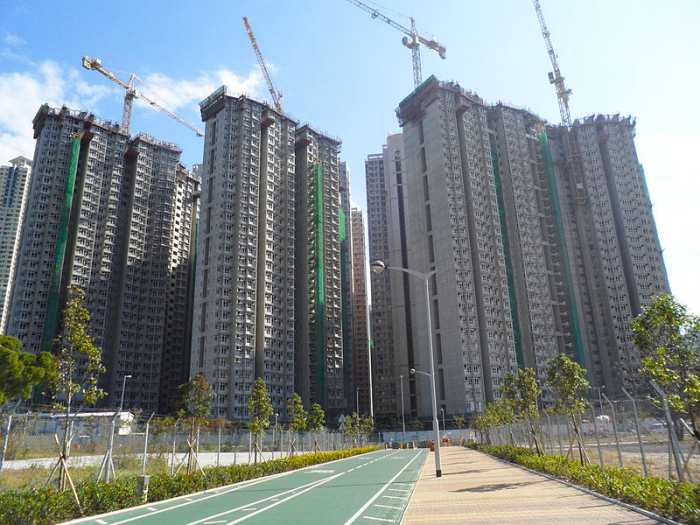
Moreover, the monthly amount of payments should not be higher than 45% of the income of the borrower (co-borrowers). Such a program does not exist in all regions; information is required to be specified locally.
It should be noted that, despite the obvious benefits, social mortgages for teachers, as well as for young families, are not very developed in our country. Bureaucracy and the complexity of registration repels potential borrowers and forces them to turn to commercial banks for the same purpose.
Home Improvement: Maternity Capital
Women at the birth of their second child are entitled to a state subsidy of a rather impressive amount. In 2014, its amount amounted to 430 thousand rubles. This is another way in which it is possible to improve housing conditions. Maternity capital can be used to repay an existing mortgage loan or to make an initial installment on a new loan. And in the first case, only the loan itself and interest on it are payable, but not penalties and fines.
The procedure for applying for such a mortgage is as follows: you take a confirming document from the pension fund on the amount of the balance of your maternity capital, choose a suitable loan program at a particular bank (if you intend to pay the down payment), and submit an application.
If you plan to repay an existing loan, take a certificate of the size of its balance, interest and the absence of delay. Then you need to go to a pension fund with a statement about the transfer of your funds to the bank.
In the case when it comes to paying the down payment, you will need to provide a copy of the loan agreement and the officially registered mortgage loan agreement. If you pay off the existing debt and interest on it, you will additionally need (except for a certificate of its size) a certificate of state registration of property rights to the mortgaged property, an extract from the house book, a copy of the personal account, as well as a written obligation (officially certified) persons who are owners of the acquired housing, to allocate a share to the child.
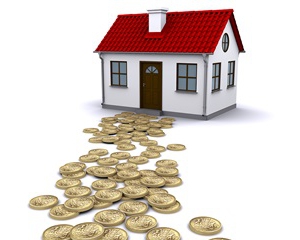
Improving housing conditions for WWII veterans
Now let's touch on another social category. We are talking about war veterans. How much do our valiant defenders need to solve the housing problem? What guarantees them the law on improving housing conditions?
There are two main legislative acts regulating this issue. This is the Federal Law “On Veterans” (No. 5-FZ of January 12, 1995) and Decree No. 714 of May 7, 2008 of the President of the Russian Federation “On the provision of housing for veterans of the Great Patriotic War of 1941-1945”. According to them, on this issue, veterans are entitled to a subsidy from the federal budget.
In Art.17 of the Federal Law "On Veterans" it is indicated that it is possible to provide housing from veterans who spent military service from 06/22/41 to 09/03/45 (at least 6 months) from the budget, and the subsidy is provided only if there is a disability. Labor veterans, like rear workers (Art. 20) enjoy appropriate benefits, but they are not provided with housing from budgetary funds.
To receive a subsidy, a WWII veteran is required to be registered as needing housing in accordance with the procedure provided for by the Housing Code of the Russian Federation. But, unlike other waiting lists, for this he does not have to be recognized as poor.
Where to turn to a veteran who claims to improve housing conditions? All applications are submitted to the local government, where they are registered.
The list of required documents contains:
- an application written in the prescribed form;
- copies of passport, pension insurance certificate, certificate of a WWII veteran;
- documents for housing (employment contract or certificate of ownership) - copies;
- certificate from the Housing Office about family composition copy of personal account, extract from the house book.
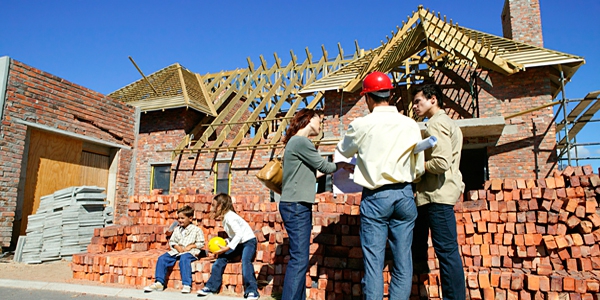
If housing is given to children
There are times when a person has sold or donated his apartment (for example, to children or grandchildren). In this case, can a veteran be recognized as needing to be placed in a queue for improving housing conditions?
Art. 53 of the Housing Code of the Russian Federation he refers to such citizens as intentionally worsening their own living conditions, and for 5 years they will be denied registration. Moreover, the Federal Law "On Veterans" does not abolish the norms of housing legislation in this matter. After 5 years, the veteran will be able to register. Another option is to recognize in court that there is no intent to worsen their own housing conditions when making a transaction as a legally significant fact.
In the event that a veteran transfers housing to another person under an annuity contract, he will not be recognized as needy, since (Article 601 of the Civil Code of the Russian Federation) it is the responsibility of the annuity payer to provide him with housing. This applies to those contracts where the obligation to provide the renter (i.e., a veteran) with housing is prescribed.
He can direct the subsidy on the purchase of housing both in the primary market (in a new building) and in the secondary with an individual or legal entity (in the form of a house or apartment), an exchange with a surcharge for a larger area, repayment of the last installment when participation in shared construction, individual construction of the house.
The duration of the subsidy is 6 months. After the expiration of his unused funds go to the next veteran in the list.
Who else needs housing
Another socially unprotected category of the population is people with disabilities. And what about them? Is it possible to improve the living conditions of people with disabilities, and which one?
The privileges provided for them are established by Article 36 of the LC and other regulatory documents. They relate to the order and size of allocated housing, as well as benefits for utility bills.
The primary right to housing is enjoyed by persons with disabilities (groups I and II), if they are recognized as needing it. They (like families with children with disabilities) can queue at the place of registration or at the place of work.
If such citizens move to social service hospitals and vacate their apartments, this housing is also first of all settled by disabled people (not earlier than after 6 months). If the patient refuses the services of the hospital, instead of the previously occupied housing, he has the right to receive another out of turn.
In addition, when registering, the right of a disabled person to a separate room is provided.
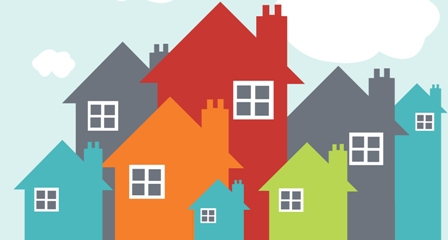
The rehabilitation program for people with disabilities requires the arrangement of the premises occupied by them, individual equipment and facilities. Such programs in many regions are still under development, but nevertheless, these requirements are already taken into account in the construction of new houses.
People with disabilities who need to improve their living conditions, placed in a social institution, have the right to be registered on an equal basis with others, regardless of available space.
Rooms specially equipped for the disabled in municipal houses should be provided to those who are single or deprived of the help and care of relatives.
Who benefits
The rate of providing a disabled person with housing depends on its category and is regulated by a number of legislative acts. The advantage is given to Heroes of Socialist Labor and persons with diseases that give the right to additional square meters in the form of a separate room.
Such diseases include active forms of tuberculosis, which require mental illness, leprosy, lack of legs or a condition requiring the use of a wheelchair, HIV infection in children, and many others.
Other benefits provided to people with disabilities (as well as to the parents of such children) include 50 percent discounts on rent (in the houses of the state fund), utility bills (in any dwellings) and fuel costs according to regulations (in rooms without heating). The additional area occupied by a disabled person is paid in a single amount, since it is not considered unnecessary.
Also, such citizens and their families are given the right to receive land plots for construction or gardening, as close as possible to their place of residence.






